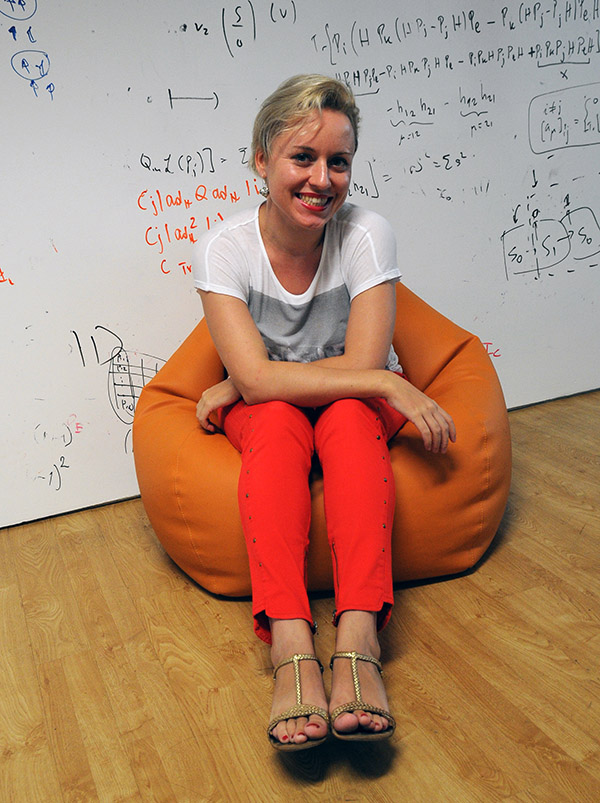Highlights
Meet a CQTian: Agata Checinska

Agata joined CQT as a Research Fellow in 2011. "My projects are inspired by biological systems such as the sense of smell," she says.
Who are you and where are you from?
My name is Agata Checinska and I come from a city called Szczecin in Poland.
Why did you come to Singapore?
It wasn't something I was anticipating, to come in this geographic direction. After finishing my PhD in quantum information, I was looking to move into quantum biology research. I knew that Vlatko Vedral's group in CQT was working in this area. For me Singapore was a distant and exotic place, and I wasn't sure about moving here until I came to visit for interview. I decided it would be interesting to experience for some time living in Asia. I've been blogging some of my experiences: http://pirateseyes.wordpress.com
What is your research about?
I am working on various projects related to the transport of electrons and excitons in complex systems. The projects are inspired by biological systems such as the sense of smell. The dominant theory of olfaction is that we differentiate molecules by their size and shape, but this may not always be enough. People have wondered if electron transport has a role. I'm looking at it from a more general point of view, at how 'molecular machines' might be designed to optimise electron transport performance. I'm also collaborating with others to come up with measures and bounds of coherence and decoherence in transport in such systems.
What do you enjoy about your work?
I think the exciting part of this work is doing something creative. You are trying to understand how nature works and taking on something that, in principle, hasn't been done or solved before. Being a physicist means constant learning and, to a large extent, pushing your own limits.
What is hard?
The challenge of trying something new is not only exciting but also hard. We have no guarantee that our efforts will bring the desired result or understanding, and that can sometimes be frustrating.
How did you end up being a quantum physicist?
Well, it all began a long time ago when I was a teenager. I became interested in astronomy and physics, perhaps because I was a curious child, and when people told me something was hard then I wanted to try it. I also liked math a lot.
What hopes do you have for your field of science?
I would like more people to see that physics is interesting and that it's not so hard. When I talk to people about my work I can see them getting curious. I would like them to forget their assumptions about physics being difficult and stop thinking they can't understand it.
My research is quite fundamental, and I don't think you can exactly predict how it will influence the practical world. But I would like to see physicists helping us to better understand processes occurring in biological systems and design technology related to that.
Would you tell us something about you that may surprise us?
I like singing, and I have been recording some world-music inspired tracks with friends in Singapore.






